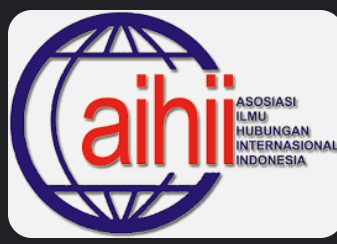One Film, Many Perspectives: Understanding The Issue Of Climate Change In The Documentary Film Before The Flood
DOI:
https://doi.org/10.33822/mjihi.v5i1.4184Kata Kunci:
documentary films, learning tool, climate change, IR theories courseAbstrak
There have been abundant literature concerning movies as a learning tool in International Relations (IR). The use of movies as a learning tool matters in order to achieve learning outcomes since movies could reduce the level of abstraction of a concept. This paper aims to explain the global climate change phenomenon depicted in a documentary film entitled Before the Flood using four main theoretical approaches in IR, namely, realism, neoliberal institutionalism, Marxism, and constructivism. This paper argues that Before the Flood is quite relevant and effective to achieve learning outcomes of IR theories course. Watching documentary films is expected to enrich learning methods in IR particularly IR theories courses by using audio-visual instruments.Referensi
Adger, N (2010). Climate Change, Human Well-Being and Insecurity. New Political Economy, 15(2), 275-292.
Australian Department of Defence (2016). Defence White Paper. https://defence.gov.au/WhitePaper/Docs/2016-Defence-White-Paper.pdf.
Barnett, J., and Adger, N. (2007). Climate Change, Human Security and Violent Conflict. Political Geography, 26(6), 639-655.
BBC Indonesia. (2016). Parlemen China Ratifikasi Traktat Iklim Paris. http://www.bbc.com/indonesia/dunia/2016/09/160902_dunia_iklim_cina_ratifikasi.
Breen, J., and Teeuwen, M. (2013). Shinto in History: Ways of the Kami. London: Routledge.
Brown, S. (1989). The Number of Factors in Security Returns. The Journal of Finance, 44(5), 1247-1262.
Brunnée, J., and Streck, C. (2013). The UNFCCC as a Negotiation Forum: Towards Common but More Differentiated Responsibilities. Climate Policy, 13(5), 589-607.
Buzan, B. (1991). New Patterns of Global Security in the Twenty-First Century. International Affairs, 67(3), 431–51.
Carrk, T. (2011). The Koch Brothers. https://www.americanprogressaction.org/issues/economy/reports/2011/04/04/9399/the-koch-brothers/.
Chen, H., and Schmidt, J. (2017). Why the Paris Agreement is Good for the United States. https://www.nrdc.org/experts/han-chen/why-paris-agreement-good-united-states.
Climate Reality Project (2017). So you saw an inconvenient sequel: Truth to power. Here’s what to do next. https://www.climaterealityproject.org/blog/so-you-saw-inconvenient-sequel-truth-power-what-do-next.
CNA Military Advisory Board (2014). National Security and the Accelerating Risks of Climate Change. https://www.cna.org/mab/reports.
Desch, M. (1998). Soldiers, States, and Structures: The End of the Cold War and Weakening U.S. Civilian Control. Armed Forces and Society, 24(3), 389-405.
Elman, C., and Elman, M.F. (2003). Progress in International Relations Theory: Appraising the Field. Cambridge: MIT Press.
Engert, S., and Spencer, A. (2009). International Relations at the Movies: Teaching and Learning about International Politics through Film. Perspectives: Review of International Affairs, 17(1), 83-103.
Finnemore, M., and Sikkink, K. (2001). Taking Stock: The Constructivist Research Program in International Relations and Comparative Politics. Annual Review of Political Science, 4, 391-416.
Forbes (2019). Koch Industries. https://www.forbes.com/companies/koch-industries/#329bb21a74ce”United.
Giddens, A. (1984). The Constitution of Society. Berkeley: University of Calfiornia Press.
Homer-Dixon, T.F. (1999). Environment, Scarcity, and Violence. New Jersey: Princeton University Press.
Imber, M., and Vogler, J. (1995). The Environment and International Relations. New York: Routledge.
IPCC (2020). Climate Change 2014: Impacts, Adaptation, and Vulnerability. https://www.ipcc.ch/site/assets/uploads/2018/02/WGIIAR5-FrontMatterA_FINAL.pdf.
Jianging, Z. (2015). National Assessment Report on Risk Management and Adaptation of Climate Extremes and Disasters Released. http://www.cma.gov.cn/en2014/news/News/201503/t20150316_276750.html.
Kabadayi, L. (2012). The Role of Short Film in Education. Procedia - Social and Behavioral Sciences, 47, 316-320.
Katzenstein, P. (1996). The Culture of National Security: Norms and Identity in World Politics. New York: Columbia University Press.
Keohane, R. (1984). After Hegemony: Cooperation and Discord in the World Political Economy. New Jersey: Princeton University Press.
Kongprasertamorn, K. (2007). Environmental Protection and Community Development : The Clam Farmers in Tambon Bangkhunsai.” Manusya: Journal of Humanities, 10(1), 1-10.
Kuzma, L., and Haney, P. (2001). And…action! Using Film to Learn about Foreign Policy. International Studies Perspectives, 2(1), 33-50.
Legro, J., and Moravcsik, A. (1999). Is Anybody Still a Realist ?” International Security, 24(2), 5-55.
Lestari, S.D. (2019). Rasionalitas China Meratifikasi Paris Agreement pada Conference of Parties di Paris Tahun 2015. Skripsi. Universitas Muhammadyah Malang.
Luterbacher, U., and Sprinz, D. (2001). International Relations and Global Climate Change. London: MIT Press.
Lynn-Jones, S. (1991). The Cold War and After : Prospects for Peace. Cambridge, MA : MIT Press.
Makarov, I. (2016). Russia’s Participation in International Environmental Cooperation. Strategic Analysis, 40(6), 536-546.
Merlo, F. (2020). The Cry of the Earth is No Different than the Cry of the Poor. https://www.vaticannews.va/en/church/news/2020-02/global-catholic-climate-movement-cry-of-earth-cry-of-poor.html.
Morgenthau, H. (1948). Politics among Nations: The Struggle for Power and Peace. New York: A.A. Knopf.
O’Neill, K. (2009). The Environment and International Relations. Cambridge: Cambridge University Press.
Paterson, M., and Grubb, M. (1992). The International Politics of Climate Change. International Affairs, 68(2), 293-310.
Preston, D., and Durham, W. (1981). Scarcity and Survival in Central America. Ecological Origins of the Soccer War. Population Studies, 35(2), 330-331.
Reuters (2019). Russia Gives Definitive Approval to Paris Climate Accord. https://www.reuters.com/article/us-climate-change-russia-idUSKBN1W8162.
Rossi, P. (2016). Sull’enciclica: ‘Laudato Si’.” Rivista Di Filosofia, 107(1), 99-140.
Rosyidin, M. (2020). Teori Hubungan Internasional: Dari Perspektif Klasik Sampai Non-Barat. Depok: Rajagrafindo.
Sen, U.K. (2018). Assessing the Social, Ecological and Economic Impact on Conservation Activities within Human-Modified Landscapes: A Case Study in Jhargram District of West Bengal, India. International Journal of Conservation Science, 9(2), 319-336.
Shishlov, I., Morel, R., and Bellassen, V. (2016). Compliance of the Parties to the Kyoto Protocol in the First Commitment Period. Climate Policy, 16(6), 768-782 .
Simpson, A., and Kaussler, B. (2009). IR Teaching Reloaded: Using Films and Simulations in the Teaching of International Relations. International Studies Perspectives, 10(4), 413-427.
Skocpol, T., and Hertel-Fernandez, A. (2016). The Koch Network and Republican Party Extremism. Perspectives on Politics, 14(3), 681-699.
Stavins, R., and Michaelowa, A. (2015). International Cooperation: Agreements and Instruments. Dalam A.I. Boncheva (ed.), Climate Change 2014: Mitigation of Climate Change, 1001-1082. Cambridge: Cambridge University Press.
Subarkah, H.R. (2017). Analisa Alasan Amerika Serikat Meratifikasi Paris Agreement. Skripsi. Universitas Muhammadiyah Malang.
Sullivan, F. (2007). The Holy See. Dalam J. Buckley (ed.), The Blackwell Companion to Catholicism, 418-431. Oxford: Blackwell.
Sunderland, S., Rothermel, J., and Lusk, A. (2009). Making Movies Active: Lessons from Simulations. PS - Political Science and Politics, 42(3), 543-547.
Swain, A. (1996). Environmental Migration and Conflict Dynamics: Focus on Developing Regions. Third World Quarterly, 17(5), 959-974.
Swimelar, S. (2013). Visualizing International Relations: Assessing Student Learning Through Film. International Studies Perspectives, 14(1), 14-38.
U.S Departemen of Defense (2014). Quadrenial Defense Review. https://dod.defense.gov/News/Special-Reports/QDR/.
UNFCC (2015). Paris Agreement. https://unfccc.int/resource/docs/2015/cop21/eng/l09r01.pdf.
UNFCCC (tanpa tahun). What Is the Kyoto Protocol? https://unfccc.int/kyoto_protocol
Valeriano, B. (2013). Teaching Introduction to International Politics with Film. Journal of Political Science Education, 9(1), 52-72.
Vogler, J. (1995). The Global Commons: A Regime Analysis. New York: Wiley.
Vogler, J. (2016). Climate Change in World Politics. New York: Palgrave Macmillan.
Waltz, K. (1979). Theory of International Politics. Reading, MA: Addison-Wesley.
Waltz, K. (1990). Realist Thought and Neorealist Theory. Journal of International Affairs, 44(1), 21-37.
Williams, P. (2008). Security Studies: An Introduction. New York: Routledge.





